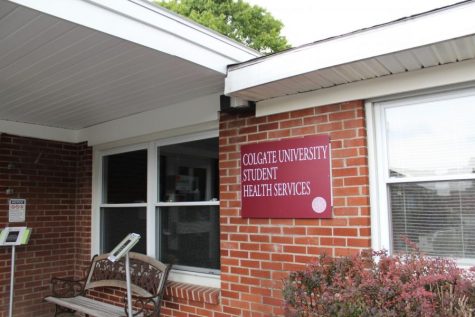Minus the City: Colgate Fails to Address Menstrual Equity On Campus
On March 5, Progress Period hosted a conversation with Sociology and Women’s Studies professor Meika Loe discussing gender, justice and menstrual activism. It was a raw and candid talk that placed menstruating bodies at the forefront: blood, tampons and all. Professor Loe began by saying that she has become acquainted with menstrual activism through Colgate activists like Progress Period, who have made it their mission to destigmatize menstruation on campus. Professor Loe, through her dissertation on Viagra and its social implications, her debut in the documentary Orgasm Inc., as well as her courses on campus that strive to speak to students through the lens of Reproductive Justice, emphasized the importance of conversations on sexualities, and openness when talking about our bodies and sexual pleasure. These are crucial steps when dismantling patriarchy that perpetuates a culture where women and queer individuals are continually made to feel ashamed of their bodies and expressing their sexuality. In this light, menstruation must be a part of this conversation as it involves bodily functions that menstruators cannot control, but nevertheless has been made to be something that should be kept hidden and discrete given its “offensive” or “disgusting” nature.
But how do we define menstrual activism, and what makes it stand out from all other types of activism? Professor Loe adopts the definition given by Chris Bobel and Breanne Fahs, both activists and Women and Gender Studies professors, that reads, “menstrual activism is a collective call to reduce stigma and shame around menstruation — part of the enduring project of loosening the social control of women’s bodies.” Still this definition is quite limiting, but the beauty of modern day menstrual activism and what sets it apart from other movements is its language. Professor Loe stresses the importance of using the term “menstruator” as a more general and gender neutral term that includes all types of individuals who menstruate, whether they are a woman or not. Some women don’t even menstruate, Professor Loe remarks, as some may be experiencing menopause and eating disorders, or they may be pregnant or participate competitively in sports. Menstrual activism strives to be all encompassing; according to The Messy Politics of Menstrual Activism, it is a movement works to create a better “world where everyone is supported in whatever body they inhabit.”
Still, menstrual activists around the world are faced with the difficulty of making period products accessible to underserved populations. While steps have been taken to resolve these issues, like legislation in New York City that places free menstrual products in public school grades 6–12, homeless shelters and correctional facilities, low-income menstruators still cannot afford the products they need despite menstrual products being included among the “top eight basic essentials” by the Feeding America Survey in 2011. And believe it or not, this issue follows us here to Colgate’s campus. While Progress Period relentlessly tries to make period products accessible in campus restrooms, the Colgate administration does not cooperate. Sure, they have met needs in the past, but menstrual product accessibility is an on-going effort. They continue to shut Progress Period down, believing that they have already helped sufficiently. Meanwhile, they fail to refill product dispensers, leaving a few tampons at the opening to give the illusion they have been filled. Not only this, but some menstrual products in bathrooms are not new, some even dating back to 1995. This is extremely worrying and things are only getting worse.











Dana Wills • Mar 14, 2021 at 9:52 pm
This is the most important issue facing Americans today. No question about it.